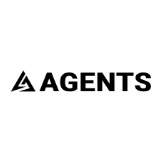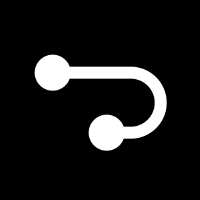Agentic AI Comparison:
ActionAgents vs AgentGPT
Introduction
AgentGPT and ActionAgents are AI-driven autonomous agent platforms designed to automate complex workflows and tasks. This report compares the two platforms across five critical metrics—autonomy, ease of use, flexibility, cost, and popularity—using evidence from recent reviews and official information from their respective sources.
Overview
ActionAgents
ActionAgents is an AI platform focused on enabling businesses to deploy AI agents for workflow automation, with a strong emphasis on integrations, business use cases, and operational scalability. The platform is marketed for its flexibility in connecting to external services and APIs, facilitating both autonomous and collaborative work environments.
AgentGPT
AgentGPT, developed by Reworkd AI, allows users to create autonomous agents powered by GPT-3.5 or GPT-4, capable of decision-making and executing multi-step objectives independently. It is browser-based, requires no coding skills, and is tailored for accessibility and adaptability in routine automation and custom chatbot creation.
Metrics Comparison
autonomy
ActionAgents: 9
ActionAgents is designed for business process automation with deeper integrations and more advanced autonomy in workflow execution, supporting fully autonomous operation across connected business tools.
AgentGPT: 8
AgentGPT can autonomously plan, reason, and execute tasks based on user objectives with minimal human intervention but is designed to allow some human-in-the-loop supervision, which means it is less fully autonomous than solutions like AutoGPT.
While both provide strong autonomy, ActionAgents offers deeper business workflow integration and more robust autonomous capabilities in enterprise contexts.
ease of use
ActionAgents: 7
ActionAgents offers a range of powerful integrations but may require initial configuration and understanding of business systems. Its enterprise orientation can introduce complexity for less technical users.
AgentGPT: 9
AgentGPT is browser-based, requires no coding, and is explicitly built for non-technical users. Its interface allows for intuitive setup and control of agent behavior.
AgentGPT is more user-friendly and aimed at a wider, less technical audience, while ActionAgents prioritizes power and integration, which can increase the learning curve.
flexibility
ActionAgents: 9
ActionAgents is engineered for flexibility, offering broad API support and advanced workflow design, making it well-suited for diverse, complex business environments.
AgentGPT: 7
AgentGPT allows customization of agent objectives and supports a variety of use cases, but has more limited integration capabilities compared to enterprise-focused platforms.
ActionAgents surpasses AgentGPT in integration options, making it more flexible for advanced, interconnected workflows.
cost
ActionAgents: 6
ActionAgents' pricing reflects its enterprise focus and integration capabilities. While cost details are publicly less transparent, the platform likely incurs higher costs due to business-scale automation and custom integrations.
AgentGPT: 8
AgentGPT has transparent, usage-based pricing and a generous free tier, making it cost-effective for individuals and small teams. The browser-based deployment reduces infrastructure costs.
AgentGPT is generally more affordable and approachable for small-scale or individual users, while ActionAgents is priced for business/enterprise automation.
popularity
ActionAgents: 6
ActionAgents is gaining traction in enterprise automation circles but does not have the broader general user base of AgentGPT. Its focus on business use cases targets a narrower audience.
AgentGPT: 8
AgentGPT has substantial visibility due to its open-source origins, ease of use, and accessible web deployment, making it popular among both individuals and small businesses.
AgentGPT enjoys broader general popularity, while ActionAgents is more recognized in specific enterprise niches.
Conclusions
AgentGPT excels in accessibility, affordability, and popularity, making it ideal for individuals, startups, and teams seeking straightforward autonomous task automation. ActionAgents leads in autonomy and flexibility for business workflows, providing deeper integration and scalability for enterprise contexts at a higher cost and complexity. The best platform depends on use case: AgentGPT for user-friendly, general automation; ActionAgents for flexible, enterprise-grade workflow orchestration.

